|
|
| |
|
| |

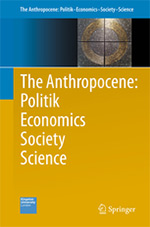
The Anthropocene
Politik – Economics – Society – Science (APESS)
Edited by
Hans Günter Brauch,
AFES-PRESS, chairman
Free University of Berlin (Ret.)
A Peer Reviewed Book Series
ISSN: (Print)
ISSN: (Online)
On this Book
Sustainable development is the 21st Century’s wicked problem. After 40 years into this agenda have reversed only few unsustainable trends we hear the call for a paradigm shift, transformation, radical change or system innovations in order to finally change course. But what does this actually mean? And how do we put it into practice?
This book describes the path ahead. It combines system transformation research with political economy and change leadership insights when discussing the need for a great mindshift in how human wellbeing, economic prosperity and healthy ecosystems are understood if the Great Transformations ahead are to lead to more sustainability.
It shows that history is made by purposefully acting humans and introduces transformative literacy as a key skill in leading the radical incremental change strategies that wicked problems require, illustrating their nature through mapping pioneering practices and their commonalities.
This book
- Brings a political economy lens into sustainability transition research that highlights how system innovations cannot be understood without addressing economic drivers, vested interests and power relations
- Combines a scientific critique of what needs to change and why (here: the economic paradigm) with an equally scientific discussion of how this change can happen and who can engage in it (system transformation theory).
- Puts human’s transformative literacy centre stage when proposing radical incremental transformation strategies for large-system change
.
- Showcases empirical assessments of pioneering movements working for a recoupling of economic processes with nature and human wellbeing.
- Provides an easily accessible introduction to system transformation research and an emerging new economic paradigm for sustainability.
Content Outline
1 Introduction
2 What Political Economy adds to Transformation Research
3 Why the Mainstream Economic Paradigm Cannot Inform Sustainability Transformations
4 Mapping an Emerging New Economic Paradigm in Practice
5 How to Work a Great Mindshift for Sustainability Transformations |
Endorsements of this Book
 |
Mankind's search for a new narrative outside the ‘planet stupid’ discourse of GDP growth is in full swing. Maja Göpel’s book is a field guide to our unfolding future. A must- read for leaders who seek to make sense of what's going on and ensure their organisations stay relevant.
Mark Drewell, former CEO, Globally Responsible Leadership Initiative, Senior Partner The Foresight Group
|
| |
|
Reimagining the economy, and its purpose in our lives, is one of the key challenges of this century. Maja Göpel draws on an array of emerging ideas to show that it is not just a challenge but an opportunity, and one that has already taken root in inspiring initiatives around the world.
Kate Raworth, Initiator of Doughnut Economics, Senior visiting research associate, Environmental Change Institute, University of Oxford
|
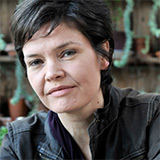 |
| |
|
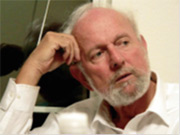 |
We want sustainable development. That requires profound changes in the way we explain and manage our societies. Maja Göpel shows how to do that. She offers the analytical framework for transformative change. Brilliant
Ernst Ulrich von Weizsäcker, Co-President Club of Rome
|
| |
|
For those seeking to understand and engage with our turbulent global moment, The Great Mindshift serves as a primer for the perplexed and a manifesto for the disheartened. It skillfully explains how tenacious 20th century ideas – especially outmoded economic principles and a constricted view of the meaning of well-lived life – are hobbling the evolution of the mindsets we need for navigating the dangerous 21st century. Gramsci’s observation that “the old is dying and the new cannot be born” has never been truer, and in Göpel we have a wise midwife to assist us in giving birth to a healthy planetary civilization.
Paul Raskin, President, Tellus Institute and Lead Author The Great Transition
|
 |
| |
|
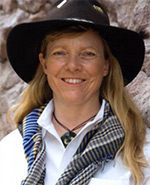 |
The demand for more innovation is everywhere. And most people think of new technologies. But we have all the technologies for sustainable futures. What we urgently need are mental, socio-cultural, and governance innovations that overturn the barriers to their rapid deployment. This book shows why updating mainstream economic thinking is a high leverage point in making these innovations happen, and how everyone can contribute to them.
Hunter Lovins, President, Natural Capitalism Solutions
|
| |
|
I love the book! Conventional economics is based on assumptions about human nature and mindsets that are only held by economists trained to think that way. The rest of humanity is much more cooperative and concerned with social fairness, wellbeing, and sustainability. Maja Göpel's book is an excellent guide to where economics has gone wrong and how to replace its shortsighted mindset with one more able to help us create a sustainable and desirable anthropocene.
Prof. Robert Costanza | Chair in Public Policy | Crawford School of Public Policy | The Australian National University and Founder The Solutions Journal
|
 |
| |
|
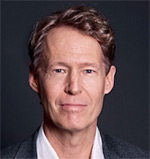 |
Maja Göpel has brilliantly synthesised a vast library on societal transformation and come up with a new, robust reframing and a great contribution to what she calls “transformative literacy". Her call for “radical incremental transformation” in every element of our economy neatly captures both the urgency and the realism with which we must tackle the seemingly impossible, yet essential and inevitable, challenges of our times. The Great Mindshift helps make a great societal shift possible.
Alan Atkisson Pres & CEO, AtKisson Group (Sweden & USA) Pres, Center for Sustainability Transformation GmbH (Germany) Founder, www.17goals.org
|
| |
|
Maja Göpel reminds us that vision must be combined with venture (Vaclav Havel) and that the key challenges we now face are human constructs, not natural laws. She shows that our guiding ideas of progress, freedom, prosperity and growth can be re-interpreted to open the doors to a Second Enlightenment.
Jakob von Uexküll, Founder, Right Livelihood Award and World Future Council
|
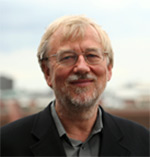 |
| |
|
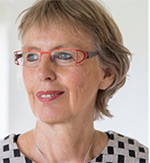 |
Leading complex system change towards a sustainable world requires that we acquire new skills as the collective capacity of leaders. In sustainability issues system patterns and structures often hold individuals back to enact the necessary mind shift. Yet, seeing systemic barriers leads to opening up one’s convictions and beliefs. This is what Maja Göpel brilliantly shows in her book: the concept of transformative literacy builds an important bridge between structural approaches to change and those emphasizing personal development.
Petra Kuenkel | Co-Founder, Executive Director Collective Leadership Institute and Author of The Art of Leading Complexity
|
| |
|
On the Author
 |
Dr. Maja Göpel is head of the Berlin Office of the Wuppertal Institut. For the past 20 years she has been following the quest to find out why humans collectively do not create the sustainable societies that they individually state to wish for. This took her back and forth between theory and practice, reflection and change making in different sectors. She visited six universities in four countries for a PhD in global political economy and a diploma in media and communications and still enjoys lecturing and learning. For several civil society organizations she served as a campaigner, advocate, and expert in world trade, climate change, financial reform, and sustainable development. From 2006-2012 she helped start up the World Future Council, created its Future Policy Award celebrating integrated policy solutions and the Future Justice programme tackling today’s short-termism in politics and economics.
This enabled work with change leaders from all walks of life, took her around the world and into EU and UN policy-making. In 2013 Maja went back to research with the Wuppertal Institut where her work focuses on the role of mind and paradigm shifts in transformation processes and the translation of large system change analysis into local change maker strategies. She is a member of the Club of Rome and the Balaton Group and currently serves on the steering committee of the German Sustainable Development Solutions Network (SDSN) and the scientific advisory boards of terre des hommes Germany and Development and Peace Foundation. Her daughters are 1 and 4.
Among the selected English publications are (with F. Mersmann, T. Wehnert, S. Arens, O. Ujj): “Shifting paradigms: unpacking transformation for climate action; a guidebook for climate finance & development practitioners, working paper, Wuppertal Institute, 2014, at: <http://epub.wupperinst.org/frontdoor/index/index/docId/5518>; “Navigating a new agenda: questions and answers on paradigm shifts & transformational change, working paper, Wuppertal Institute, 2014, at: <http://epub.wupperinst.org/frontdoor/index/index/docId/5517>; “The Responsibility to Prevent: Early Warning Systems to Protect Future Generations”, in: M.C. Cordonier Segger, S. Jodoin (Eds.) ‘Sustainable Development, International Criminal Justice and Treaty Implementation (Cambridge: Cambridge University Press, 2013); “The Tragedy of our Growth Saga”, in: F. Hinterberger, E. Pirgmaier, E. Freytag, M. Schuster (Eds.): Growth in Transition (London: Earthscan, 2011): 147-153; “Shared responsibilities and future generations: beyond the dominant concepts of justice”, in: Council of Europe (Ed.): Towards a Europe of shared social responsibilities: challenges and strategies,’ Trends in social cohesion No. 23 (Strasbourg: Council of Europe Publishing, 2011): 135-155, at: <http://www.coe. int/t/dg3/ socialpolicies/socialcohesiondev/source/Trends/Trends_23_EN.pdf>; “Guarding our Future: How to Protect Future Generations”, in: Solutions, 1,6, 2011: 62-70: <https://www.thesolutionsjournal.com/article/guarding-our-future-how-to-protect-future-generations/>; “Formulating Future Just Policies: Applying the Delhi Sustainable Development Law Principles”, in: Sustainability, 2,6 (2010). 1694-1718; reprinted in Indian Economic Journal, 57,4 (2010),
at: <http://www.mdpi.com/2071-1050/2/6/1694/pdf>.
Her recent German publications include: “Warum wir der Zukunft einen Platz am Verhandlungstisch geben sollten: zukünftige Generationen in der Post-2015-Agenda”, in: Michéle Roth (Ed.): Globale Trends 2015 (Frankfurt: Fischer Taschenbuch, 2015): 155-160; (with Moritz Remig): “Vordenker einer nachhaltigen Gesellschaft: Karl Polanyi und die "Große Transformation", in: Gaia, 23,1 (2014): 70-72, at: <https://epub.wupperinst.org/frontdoor/index/index/docId/5276>; “Ombudspersonen für zukünftige Generationen: Diktatoren oder Bürgervertreter?”, in: Bernward Gesang (Ed.): Kann Demokratie Nachhaltigkeit? (Wiesbaden: Springer VS, 2014): 89-108; “Mitweltkommunikation 2030 als Beitrag zur Bürgerbeteiligung: Themen, Akteure, Methoden”, in: Paul Bellendorf (Ed.): Nachhaltigkeit gestalten: Trends und Entwicklungen in der Umweltkommunikation (München: Oekom, 2014): 359-367. |

Sustainable development requires an integrated approach to policy and science because many of the issues it raises cannot be addressed within a single department or using the tools of individual scientific disciplines. This is where the Wuppertal Institute's research programme begins - by taking an interdisciplinary approach and working towards systems understanding. Designing transitions to a sustainable development at local, national and international level is the Wuppertal Institute's stated mission. Its research focuses on the resources, climate and energy related challenges and their relation to economy and society. Special emphasis is put on analysing and stimulating innovations that decouple economic growth and wealth from natural resource use.
Research focus are the transition processes towards a sustainable development. This requires an integrated approach to policy and science because many of the issues it raises cannot be addressed within a single department or using the tools of individual scientific disciplines.
Since 2010 Professor Uwe Schneidewind has been President of the Wuppertal Institute. The Institute was founded in 1991 by Professor Ernst Ulrich von Weizsäcker who directed it until 2000.
Professor Peter Hennicke headed the Institute from 1 November 2000 until the end of January 2008. Until the appointment of Professor Schneidewind, as from March 2010, the Vice President Professor Manfred Fischedick provisionally headed the Institute's research. The Business Manager is Brigitte Mutert-Breidbach. The institute's seat is in Wuppertal. It is represented in Germany's capital by its Berlin Office since 2004.
An scientific International Advisory Board supports the Institute in defining fundamental research strategies as well as ensuring the quality and independence of its research.
The Wuppertal Institute has the legal status of a non-profit limited company (gemeinnützige Gesellschaft mit beschränkter Haftung, according to German law) and receives basic funding from the Land North Rhine-Westphalia. Third-party funding supports most of the Institute's budget and projects.
Wuppertal Institut’s Research Focus on Sustainability Transition
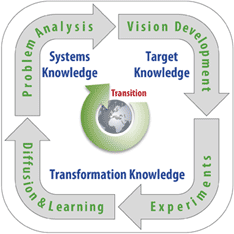
Sustainable developments require integrated policy and economy approaches. Questions regarding developments that are fit for the future can most likely not fully be answered or addressed within departments or individual science disciplines. That's where the Wuppertal Institut's research programme with its transdiciplinary and system knowledge oriented approach begins. As part of a transformative science, it is aimed at designing transitions towards a sustainable development.
Transformative research contributes to solving societal problems and is characterized by an explicit aspiration to get involved: The aim is to catalyse processes of change and to actively involve stakeholders in the research process. In this way, transformative research generates "socially robust" knowledge needed for sustainability transitions. Research at the Wuppertal Institut thus follows a transdisciplinary concept of knowledge: it does not only serve to generate "systems knowledge" (e.g. technological or resource-oriented systems analysis), but also integrates stakeholders in the process of generating "target knowledge" (visions and guiding principles) and "transformation knowledge" in concrete settings of urban or sectoral transitions to sustainability.
Transformative research contributes to solving societal problems and is characterised by an explicit aspiration to get involved: The aim is to catalyse processes of change and to actively involve stakeholders in the research process. In this way, transformative research generates "socially robust" knowledge needed for sustainability transitions. Research at the Wuppertal Institut thus follows a transdisciplinary concept of knowledge: it does not only serve to generate "systems knowledge" (e.g. technological or resource-oriented systems analysis), but also integrates stakeholders in the process of generating "target knowledge" (visions and guiding principles) and “transformation knowledge” in concrete settings of urban or sectoral transitions to sustainability.
The quality of transformative research must be measured on the basis of its own aspiration to catalyse societal change for sustainability. Assessment schemes for transformative research thus include not only academic quality criteria, but also new forms of measuring societal impact. At the Wuppertal Institut, transformative research approaches and innovative methods of assuring their scientific quality are being developed. This is done in cooperation with leading national and international institutions in the field of transdisciplinary sustainability research.
See at: http://wupperinst.org/en/research/transformative-research/ |
|
|
|